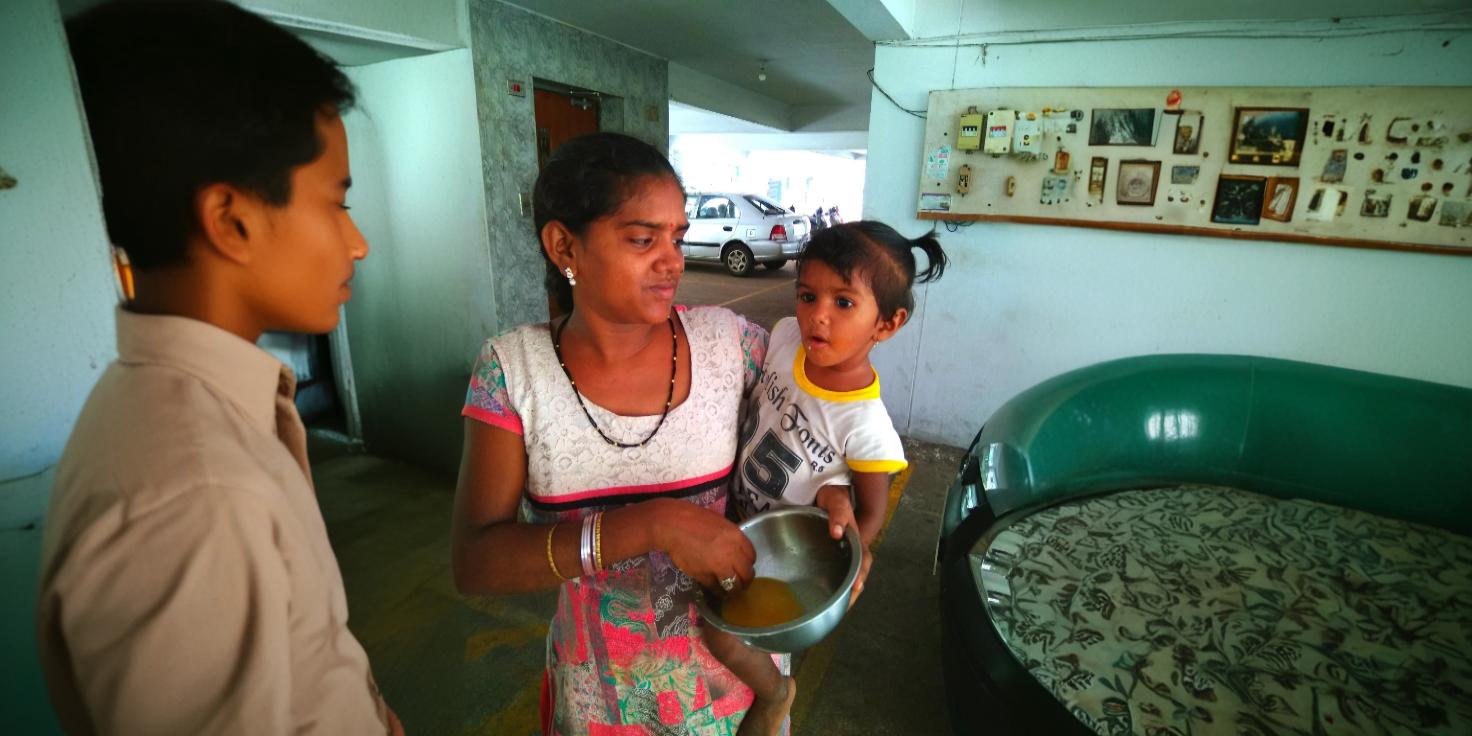Older adults overlooked in HIV fight: Lancet study
A Lancet Healthy Longevity study finds HIV infections rising among older adults, while prevention efforts stay youth-focused
Author

Sneha Richhariya is a reporter based in New Delhi, India. Her work focuses on health, environment and gender. She is the recipient of UN Laadli Media Award 2024 and Human Rights and Religious Freedom (HRRF) Award 2023. She has received fellowships from Internews Earth Journalism Network, Health Systems Transformation Platform (HSTP), Deutsche Welle Hindi, Report for the World and National Coalition for Natural Farming (NCNF). She has written for organisations like Deutsche Welle, Scroll, Mongabay India, South China Morning Post (SCMP), Newslaundry, Himal Southasian, The Third Pole, The Quint, IndiaSpend and Article 14.
View all posts
Author

Sneha Richhariya is a reporter based in New Delhi, India. Her work focuses on health, environment and gender. She is the recipient of UN Laadli Media Award 2024 and Human Rights and Religious Freedom (HRRF) Award 2023. She has received fellowships from Internews Earth Journalism Network, Health Systems Transformation Platform (HSTP), Deutsche Welle Hindi, Report for the World and National Coalition for Natural Farming (NCNF). She has written for organisations like Deutsche Welle, Scroll, Mongabay India, South China Morning Post (SCMP), Newslaundry, Himal Southasian, The Third Pole, The Quint, IndiaSpend and Article 14.
View all posts
- admin / 2 months

- 0
- 3 min read

Author

Sneha Richhariya is a reporter based in New Delhi, India. Her work focuses on health, environment and gender. She is the recipient of UN Laadli Media Award 2024 and Human Rights and Religious Freedom (HRRF) Award 2023. She has received fellowships from Internews Earth Journalism Network, Health Systems Transformation Platform (HSTP), Deutsche Welle Hindi, Report for the World and National Coalition for Natural Farming (NCNF). She has written for organisations like Deutsche Welle, Scroll, Mongabay India, South China Morning Post (SCMP), Newslaundry, Himal Southasian, The Third Pole, The Quint, IndiaSpend and Article 14.
View all posts
HIV prevention campaigns have remained focussed on the young, driven by outdated risk perceptions, even as infections are rising among older adults, a Lancet Healthy Longevity study has revealed.
The research, led by Dr. Luicer Olubayo from the Sydney Brenner Institute for Molecular Bioscience at Wits University, highlighted that HIV prevalence among adults over 50 often matches or exceeds that of younger groups, yet this demographic is largely ignored by public health efforts.
The study drew on data from adults aged 40 and older across six research centers in Kenya, South Africa, Burkina Faso, and Ghana, finding that older adults are less likely to believe they are at risk for HIV, a misconception fueled by societal stereotypes that associate HIV with youth.
“We often think of HIV as a disease of younger people. It doesn’t help that intervention campaigns are mainly targeted at the youth,” said Dr. Olubayo, the study’s first author. “This perception gap contributes to low HIV testing rates among older adults, delaying diagnosis and hindering access to care.”
Associate Professor F. Xavier Gómez-Olivé, a co-author, noted, “While HIV prevalence among individuals over 50 years of age is similar to or even exceeds that of younger adults, HIV surveys focus on younger individuals, leaving considerable gaps in understanding HIV prevalence, incidence, and treatment outcomes in older populations.”
This oversight undermines global efforts to achieve UNAIDS’ 95-95-95 targets by 2030, which aim for 95% of people living with HIV to know their status, 95% of those diagnosed to be on treatment, and 95% of those treated to have a suppressed viral load.
The study also identifies social stigma as a major barrier. Older adults often face embarrassment or fear of judgment when discussing sexual health, which discourages testing and treatment. Additionally, health care providers may not routinely screen older patients for HIV, assuming they are not sexually active. The research points to biological factors, such as age-related changes like vaginal dryness in post-menopausal women, that may increase HIV transmission risk, further compounding the issue.
Repeated HIV testing needed in older adults
Interventions tailored for older adults are urgently needed, the researchers argue, suggesting repeated HIV testing and launching awareness campaigns to reduce stigma and educate older adults about their risk.
The findings align with broader research. A Centers for Disease Control and Prevention, or CDC HIV Surveillance Report indicates that in 2021, about 41% of people living with diagnosed HIV in the US were aged 55 and older. Similarly, UNAIDS Report on the Global AIDS Epidemic 2013 provides estimates on the number of people living with HIV, including age-specific data, and notes the increasing prevalence among older adults due to both new infections and longer survival with antiretroviral therapy (ART).
In South Africa, there has been both a growing population of adults aging with HIV due to widespread ART access and averted death, as well as a dramatic rise in the prevalence of non-communicable diseases, research showed.
Also read: US Aids Pause May Spark HIV Surge in Kids: Lancet Report
(Do you have a health-related claim that you would like us to fact-check? Send it to us, and we will fact-check it for you! You can send it on WhatsApp at +91-9311223141, mail us at hello@firstcheck.in, or click here to submit it online)
Author

Sneha Richhariya is a reporter based in New Delhi, India. Her work focuses on health, environment and gender. She is the recipient of UN Laadli Media Award 2024 and Human Rights and Religious Freedom (HRRF) Award 2023. She has received fellowships from Internews Earth Journalism Network, Health Systems Transformation Platform (HSTP), Deutsche Welle Hindi, Report for the World and National Coalition for Natural Farming (NCNF). She has written for organisations like Deutsche Welle, Scroll, Mongabay India, South China Morning Post (SCMP), Newslaundry, Himal Southasian, The Third Pole, The Quint, IndiaSpend and Article 14.
View all posts










